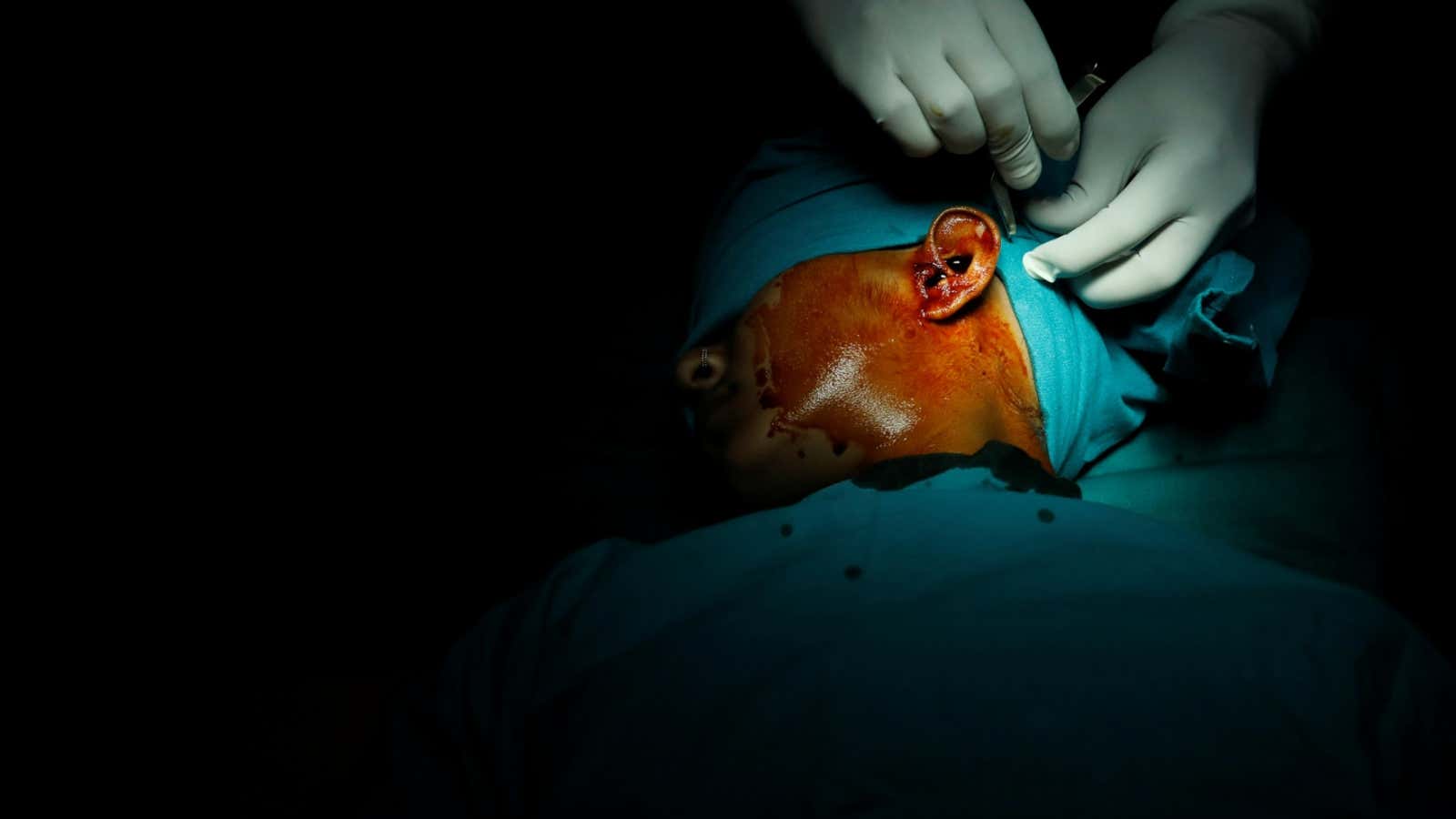I have narrated this anecdote often, but it bears repeating now perhaps more than ever.
This incident occurred more than 12 years ago. Having joined as a post graduate in anaesthesiology in Pune, Maharashtra, I was the junior-most student in my department. As a newbie, I was used to the usual barrage of questions about my family, academics, and all that.
Early on, I had overheard unsettling queries asked of fellow juniors—and not necessarily in a “ragging” sort of way. A certain conservative senior doctor had been asking around about the castes of the new doctors, and eventually came up to me while I was helping during a surgery and asked me bluntly: “Teri jaat kya hai? What is your caste?”
It was the first time in my life that a doctor had really stressed on my caste, and I knew from previous encounters that this mattered to him. I told him I was a Thiyya. His nose crinkled and he frowned.
“I have never heard of Thiyya. Is that as good as a Nair or Nambiar?” he asked, as though we were discussing Baskin Robbin flavours.
For context, Nair and Nambiar would be considered “high castes” in the prevalent hierarchy of the southern Indian state of Kerala.
Now I knew I would be treated like crap since I didn’t belong to a caste high enough for him, so I said the first thing that came to my mind at that moment.
“Sir. Actually we Thiyyas are higher than Nairs and Nambiars in Kerala. We have always looked down upon them.” A newfound respect dawned in my senior’s eyes.
Technically, I wasn’t lying, you see. Thiyyas have been associated with toddy tapping and so have been sitting on top of coconut palms, looking down on you all for generations! But honest to god, the treatment my co-post-graduate (also a Thiyya, by an insane coincidence) and I faced from that particular staff member changed from that day on. We were never mocked or treated like a low class through our course ever.
This is a story that the two of us laugh about even today.
I was lucky
However, as I read about the suicide by a medical post graduate at Mumbai’s Nair Hospital, under pressure allegedly from repeated abuse by her seniors for her caste, I realise I was lucky. Back then, the concerned doctor was not tech-savvy enough to Google my caste. He did not have the presence of mind to confirm with any other Malayali (natives of Kerala) about my claims of being an “upper echelon” caste.
I was lucky. But so many still are not. And yes, I know this applies to all fields and professions in India (Bravo! Give yourselves a round of applause. What a thing to be consistent about), but I am writing this specifically to call out medical doctors.
Yes, like everyone else, you have been conditioned since childhood. It reflects in your religious beliefs, your choice of food and what not. But you are a human being who can evolve when new knowledge is passed on to you.
After half-a-decade in the medical field and witnessing the miracle of birth from every conceivable angle, you no longer believe babies are delivered by the stork, do you? Then how can you, who has viewed thousands of slides of blood and every organ under the microscope and witnessed everything from dissection of dead bodies to operation on hundreds of living beings, still believe in something as ridiculous as “someone’s blood or body being of a lower caste”?
- In which pathology slide did you see a “low caste” cell roaming around?
- When you ask for a blood donation, which test do you use to identify the caste?
- When you deliver a baby, where do you look to figure out the newborn’s caste?
- Which part of your examination of patients’ beating hearts reveals their caste to you?
Enough with the whataboutery
Enough about asking others to fix their problems first. Your justification for the existence and necessity of a caste system (and why some people should remain lower than you because of the blood in their veins) is what killed a young doctor this week in 2019.
Dr Payal Tadvi was studying to be a gynaecologist. There was nothing wrong with her blood. The problem was in the minds of the doctors in whom it was ingrained that this woman was of a lower caste. To hell with sly-tongued politicians, traditional beliefs, and reservation systems—as a doctor, you owe it to the society to give up bigotry and speak up so that no one else suffers this again.
When you learn that members of your department is discriminating against a doctor or patient, have the guts to call them out, be it the department head or a brash hotshot.
Do what it takes so that, in a system that is failing Indian doctors at so many levels—from reservations to violence—a cancer as outdated as caste does not kill a young doctor ever again. Unlike other maladies, we do not need government approval, inspections by the Medical Council of India, funds from pharmaceutical companies, or new-age gadgets to eradicate casteism.
Over the years, I and my co-postgraduate—two persons who should have been perched atop coconut trees, instead ended up inside operation theatres—have together probably relieved the pain of over 15,000 people of all ages, sexes, colours, and religions. We have worked 36-hour shifts for years and struggled through insane hours and harrowing moments to keep you alive against terrible odds.
If, after this, all you see is our caste, then I pity you. Honestly, I don’t know if I would ever want to be friends with someone like you.
However, should the time come, I shall look beyond my own prejudices and heal your pain. Unconditionally.
Read the original post here. We welcome your comments at ideas.india@qz.com.
